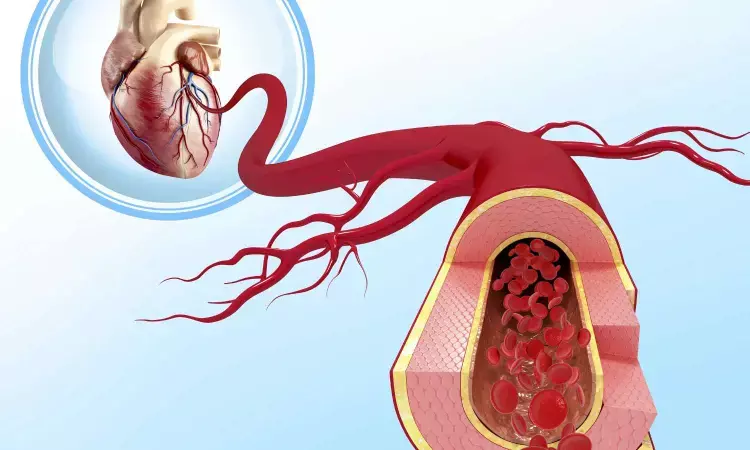- Home
- Medical news & Guidelines
- Anesthesiology
- Cardiology and CTVS
- Critical Care
- Dentistry
- Dermatology
- Diabetes and Endocrinology
- ENT
- Gastroenterology
- Medicine
- Nephrology
- Neurology
- Obstretics-Gynaecology
- Oncology
- Ophthalmology
- Orthopaedics
- Pediatrics-Neonatology
- Psychiatry
- Pulmonology
- Radiology
- Surgery
- Urology
- Laboratory Medicine
- Diet
- Nursing
- Paramedical
- Physiotherapy
- Health news
- Fact Check
- Bone Health Fact Check
- Brain Health Fact Check
- Cancer Related Fact Check
- Child Care Fact Check
- Dental and oral health fact check
- Diabetes and metabolic health fact check
- Diet and Nutrition Fact Check
- Eye and ENT Care Fact Check
- Fitness fact check
- Gut health fact check
- Heart health fact check
- Kidney health fact check
- Medical education fact check
- Men's health fact check
- Respiratory fact check
- Skin and hair care fact check
- Vaccine and Immunization fact check
- Women's health fact check
- AYUSH
- State News
- Andaman and Nicobar Islands
- Andhra Pradesh
- Arunachal Pradesh
- Assam
- Bihar
- Chandigarh
- Chattisgarh
- Dadra and Nagar Haveli
- Daman and Diu
- Delhi
- Goa
- Gujarat
- Haryana
- Himachal Pradesh
- Jammu & Kashmir
- Jharkhand
- Karnataka
- Kerala
- Ladakh
- Lakshadweep
- Madhya Pradesh
- Maharashtra
- Manipur
- Meghalaya
- Mizoram
- Nagaland
- Odisha
- Puducherry
- Punjab
- Rajasthan
- Sikkim
- Tamil Nadu
- Telangana
- Tripura
- Uttar Pradesh
- Uttrakhand
- West Bengal
- Medical Education
- Industry
Passive heat exposure increases stress on heart, posing risk to adults with history of CAD: Study

A laboratory controlled experiment including both healthy adults and adults with coronary artery disease (CAD) found that passive heat exposure was enough to increase myocardial blood flow (MBF) in all participants, regardless of age and health status, creating significant stress on the heart. The authors observed asymptomatic heat-induced myocardial ischemia in some participants with CAD, suggesting that these adults may benefit from minimizing cardiac strain during extreme heat by staying cool. The study is published in Annals of Internal Medicine.
Researchers from the Montreal Heart Institute conducted an experimental study comprised of 20 healthy young adults, 21 healthy older adults, and 20 older adults with CAD to quantify the MBF requirements of heat exposure. In a laboratory setting, participants were heated until their core temperature increased 1.5 degrees Celsius (C), and their MBF was measured before exposure and at every increase of 0.5 degrees C to their core temperature. The authors found that MBF increased in all participants when their body temperature increased by 1.5 degrees C. The authors additionally observed that 7 participants with CAD experienced asymptomatic heat-induced myocardial ischemia based on imaging evidence.
An accompanying editorial from Annals of Internal Medicine and the University of Pennsylvania Perelman School of Medicine puts the study findings in context. Given the global rise in average temperature, which has increased heat-related morbidity and mortality, identifying susceptible individuals, including those with obstructive coronary epicardial stenosis or microvascular dysfunction, is imperative. Heat exposure can cause significant stress on the heart leading to a supply–demand mismatch in vessels exhibiting flow-limiting disease. If sustained in time or potentially with repeated exposures, this can result in symptomatic or silent ischemia and explain, at least in part, the increased risk for adverse cardiovascular events observed with heat exposure in population studies. The authors advise that physicians counsel at-risk patients about the harms of excess temperature, including how to identify hyperthermia and the importance of adopting preventive measures.
Reference:
Hadiatou Barry, Josep Iglesies-Grau, Georgia K. Chaseling, Jade Paul, Camila Gosselin, Caroline D’Oliviera-Sousa, Martin Juneau, MD, Francois Harel, David Kaiser, Matthieu Pelletier-Galarneau, The Effect of Heat Exposure on Myocardial Blood Flow and Cardiovascular Function, Annals of Internal Medicine, https://doi.org/10.7326/M24-3504.
Dr Kamal Kant Kohli-MBBS, DTCD- a chest specialist with more than 30 years of practice and a flair for writing clinical articles, Dr Kamal Kant Kohli joined Medical Dialogues as a Chief Editor of Medical News. Besides writing articles, as an editor, he proofreads and verifies all the medical content published on Medical Dialogues including those coming from journals, studies,medical conferences,guidelines etc. Email: drkohli@medicaldialogues.in. Contact no. 011-43720751


